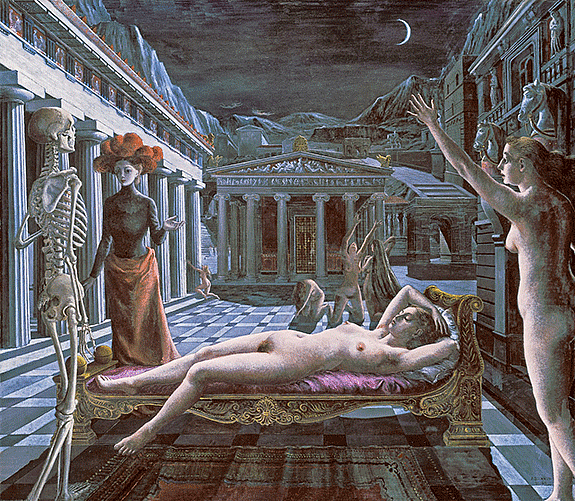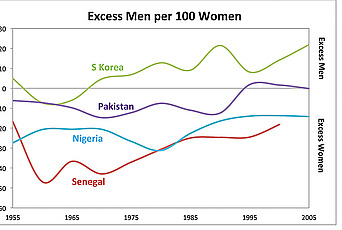Democracy and the Death of Shame

This is a book about a phenomenon I call The Lament That Shame Is Dead. The Lament is a nostalgic story of an imagined past that represents a longing for a mythical place and time when shame secured and regulated social life. It operates as a narrative of civilizational decline that expresses a fear of untethered, autochthonous, self-fashioning and self-authenticating subjects who wreak havoc on the social order and status quo. These subjects are named and disciplined as “shameless” threats who operate with an unfettered and unregulated desire to fulfill their own needs above and beyond any concern for others. They are positioned as lacking reflection, judgement, and regard for others, and characterized as natural forces—rushing rivers and raging seas that need civilization’s dikes, levees, and canals to harness their nonreflective and uncivilized urges and passions.
And what do I mean by shame? I understand shame in this context as a felt ethic of obligation and regulation that involves an actual or internalized audience that judges one’s thoughts and acts in terms of their relationship to norms or standards that one shares (or is expected to share) with others. Shame thus involves a social script, the departure from which occasions a set of negative feelings about oneself—feelings that most people seek to avoid. It is also corporeal—felt as the red on the face and ache in the gut. It is much deeper and more self-lacerating than embarrassment, the transient blush that occurs when one does something (either intentionally or accidentally) outside of particular social expectations. The unzipped pants, the shirt on inside out, the spilled coffee in the meeting, the forgotten lecture notes, the child’s unpacked lunch, or for that matter the unexpected public praise and recognition—these are sites of embarrassment that people with relatively stable social standing often experience as fleeting sensations. Contrast this with what Homer’s people know: shame often gives a sense that one would rather die than have to face it. Because of the felt experience of shame or the fear of feeling it, people act in particular ways to avoid it. And sometimes the feeling of shame or the desire to avoid experiencing it publicly leads to a closing in on the self—a kind of stasis or paralysis that involves wishing one could disappear from the surface of the earth altogether.
But I also want to argue that even as shame involves a set of generally agreed upon psychological and bodily sensations, it has no clear ontology. Rather, shame is discursively and corporeally produced through lamentations about its death, conversations about what it involves, disavowals of its requirements, and tactics of its deployment. That is why shame is not at all dead in the moments I explore in this book. Rather, it is generated and enforced through The Lament—the declaration of its fragile, moribund, or decimated status—as well as the unashamed disavowals that name and politicize what shame is invoked to conjure, discipline, and secure.
Accordingly, I focus on preoccupations with “the shameless” or “shamelessness” rather than “shameful” behavior. This distinction is significant. Identifying something as “shameful” marks it as a transgression against largely agreed-upon social codes of conduct. The person who commits shameful acts is not a threat to the social order. When we express that something is shameful, we state what we believe is already known: There are certain norms and rules of conduct, a given action falls outside their bounds, the person who commits it knows, and will feel shame—either through hiding or atonement (or both). In fact, the performance of hiding and shame about a particular transgression ultimately shores up the social codes that were breached. The charge of “shamelessness,” which is my focus, calls a person, a people, or particular behavior or practices shameless as a way of noting they are outside of the bounds of the agreed-upon social codes rather than in violation of them. With the calling of “shameless,” the assumption is that the person either does not know (having come from the “wrong” place) or does not care that what she or he does violates agreed-upon codes of conduct. The shameless person flaunts the requirements of shame and is therefore constituted as a threat to the social order.
The Lament That Shame Is Dead, I argue, emerges most pointedly when ordinary people, especially those lacking significant political power and status, resist and refashion the demands of shame and its requirements. It marks as civilization- destroying all political action that self-consciously disavows the terms of shame and reimagines who counts as a citizen and what counts as a civic practice. I argue that The Lament responds to both moments and movements of increased egalitarianism, periods during which ideals about equality extend into the realm deemed “social” and expose the borders between political and personal, public and private as protective cover for the status quo. That is to say, The Lament is preoccupied with what happens when an acceptable level of democratic skepticism toward hierarchy breaks out of the narrow category of formal politics and makes its way into what it deems nonpolitical (i.e., private/familial and social) spheres. The Lament pathologizes these ruptures in the borders among putatively “natural” spheres of personal/social/political by identifying them as evidence that shame—a good upon which all presumably agree as necessary for people to live together—is dead and needs resurrection….
At first glance, The Lament appears to be the wail of royalists, aristocrats, patriarchs, and their sympathizers—the cry of Joseph de Maistre or Edmund Burke as they bemoan rising social equality and the death of politesse and honnêteté. Indeed, The Lament’s most obvious manifestations involve straightforward elite nostalgia for political hegemony and the social order on which it rests. The imperial phrase “beyond the pale,” expresses the ideology of The Lament especially well. To call something or someone’s behavior “beyond the pale” is to conjure an image of deviance that is moral, aesthetic, and spatial in its characteristics. To be shameless is to be (from) “beyond the pale.” It suggests bodies out of order, not in the right place, not behaving in agreed upon ways. And who suffers when someone or something is “beyond the pale?” The entire social order; that is, all who are constituted in relation to “the pale”—the paradigmatic metaphor of the empire, the sphere past which the “uncivilized” cannot cross. These newly or seeking-to-be enfranchised bodies who are struggling for citizenship and political recognition or fighting to preserve the political equality on which their presence turns, do not typically comport with received mores. They look and sound unfamiliar; they act, by definition, inappropriately; they are often too loud; they eat unfamiliar foods; they wear the wrong clothes; they appear to have and live by their own social rules. They are outsiders whose proper place lies “beyond the pale.” They are uncivil. They are shameless. The world in which shame is dead is therefore the world engulfed by those beyond the pale, de-civilizing the empire and its standards of morality and decency. Given this fear of engulfment, of decivilization, those bodies must be marked as shameless or seen as evidence that “shame is dead.” And yet—even with this banishment—they are everywhere, drawn into the fold of the public world in democratic moments.


